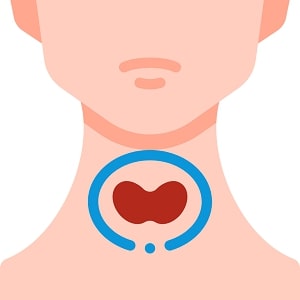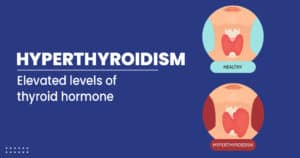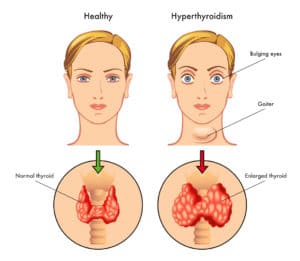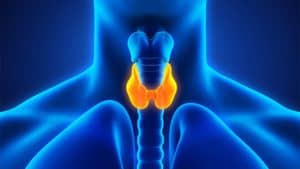INTRODUCTION
The foods you eat can impact thyroid diseases including hyperthyroidism and hypothyroidism in addition to drugs and other treatments. So it’s essential to know which foods support thyroid function if you have thyroid problems or a thyroid imbalance. Additionally, it’s advisable to be aware of the foods that can hurt your thyroid as well as the causes of thyroid issues so you don’t unwittingly make pre-existing thyroid ailments worse. Before making significant dietary changes, it is usually advised to consult your healthcare physician.
BEST FOOD FOR THYROID
Some people may want to take additional vitamins and supplements because it isn’t always simple to maintain a varied and balanced diet. You should refrain from consuming excessive amounts of vitamins and supplements if you decide to take them. This is due to the fact that some may affect your thyroid blood test results or thyroid function.
Before beginning to use any supplements or vitamins, we advise you to seek the necessary advice from your physician or pharmacist.
VITAMIN D
Healthy bones, teeth, and muscles depend on adequate vitamin D levels, which help control the creation of calcium and phosphate. Although the connection between thyroid diseases and low vitamin D levels has been suggested by certain research, it is not entirely evident and may be coincidental.
The NHS recommends that all adults and children over the age of five take a supplement containing 10 mcg of vitamin D daily because the majority of people may be deficient in it. Most people can use this during the fall and winter, but if you’re worried that you won’t get enough sunshine at other times of the year, like when it’s not summer, you can use it all year long. Dark-skinned people run the danger of not absorbing enough vitamin D from sunshine and should think about taking 10mcg tablets all year round.
CALCIUM
Some calcium-rich meals and supplements prevent the body from absorbing levothyroxine. It would be sufficient to wait 4 hours between the two to ensure that blood thyroxine levels are not significantly impacted. If you take lower fat milk (such as semi-skimmed or skimmed) while trying to lose weight, the calcium content is still high.
IODINE
Iodine is crucial for those who have a healthy thyroid since it is necessary for thyroxine production. It is crucial for pregnant women since it is necessary for a baby’s brain to grow during pregnancy and the early years of life. There is no need to take iodine supplements if you are taking levothyroxine for hypothyroidism (underactive thyroid) or a goitre (thyroid swelling).
Taking an iodine supplement is not necessary and may make your hyperthyroidism (overactive thyroid) worse if you are already receiving treatment for it. The benefits of anti-thyroid medications may be offset by the additional iodine.
SOYA
If you are taking thyroxine, you should attempt to avoid soya because it interferes with the absorption of thyroxine. The time between eating soy and taking thyroxine should be as long as possible if you want to take it. There is proof that several soy milk brands have been taken off the market by regulators in nations like Ireland, Australia, New Zealand, and Japan because they had excessive amounts of iodine or were heavily fortified with seaweed items that naturally contain iodine.
KELP
Products like kelp should be avoided since they may interfere with thyroid health and function. Kelp is a type of seaweed that naturally contains a lot of iodine. Due to this, it is occasionally advertised as a “thyroid booster” and is available in pills and dry formulations. It has no health benefits for people with thyroid dysfunction, much like iodine itself.
IRON TABLETS
Some drugs, including iron pills (ferrous sulphate), can prevent the body from absorbing thyroxine. Some medical professionals advise waiting four hours between taking the iron and the thyroxine. Observe your doctor’s or pharmacist’s recommendations. Iron may be present in some multivitamin tablets.
SELENIUM
This is present in Brazil nuts, tuna, sardines, eggs, and legumes (including beans, chickpeas, and lentils), aids with thyroid function. All of these foods are suggested as components of a wholesome, balanced diet. Since too much selenium might harm health, selenium supplements shouldn’t be taken before your natural levels have been assessed. Additionally, selenium is suggested as a therapy for moderate thyroid issues.
QUICK EXAMPLES!
YOGHURT
Dairy products, especially yoghurt, are particularly nutrient-dense and aid in meeting the body’s iodine needs. Iodine is required for the thyroid gland to function at its best.
FRUITS
Pectins, which are found in abundance in apples, pears, plums, and citrus fruits, aid in the body’s detoxification of mercury, one of the most important metals linked to thyroid issues.
SEEDS AND NUTS
Zinc is abundant in pumpkin seeds, sunflower seeds, and nuts. Thyroid issues have been linked to low zinc levels. To refill your body with zinc, add these to salads or chew on them as snacks.
LEGUMES and BEANS
Not only are beans and other legumes high in fibre and zinc. These aid in regulating the gastrointestinal tract, particularly bowel movements and assist to prevent constipation. One of the healthiest foods for thyroid issues is chickpeas.
GREEN TEA
Green tea is well renowned for its ability to speed up metabolism. Catechins, a type of antioxidant found in green tea, push fat cells to release stored fat and aid the liver in burning off extra calories.
WHOLE GRAINS
When digesting whole grains, the body expends more energy. Since the body must work harder to digest the whole grains, the added fibre speeds up metabolism. To speed up your metabolism and lose weight, try eating oats, brown rice, sprouts, sprouted grain bread, and quinoa.
ALWAYS TAKE THE RECOMMENDED DOSE:
Although it can be tempting to believe that taking high doses of some supplements will be beneficial, frequently going above the recommended intake (RI) can be more harmful than helpful. We advise against taking high dosages of vitamins or supplements, and please review the patient information leaflet that comes with your thyroid medicine to see if the supplements are appropriate for you. Unless otherwise stated, you should always take them at least four hours apart from your thyroid medicine to prevent absorption complications.
Please consult your doctor or pharmacist if you are unsure if you should take vitamins or other supplements.









